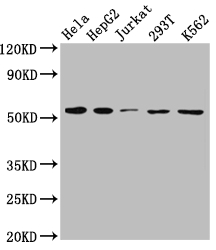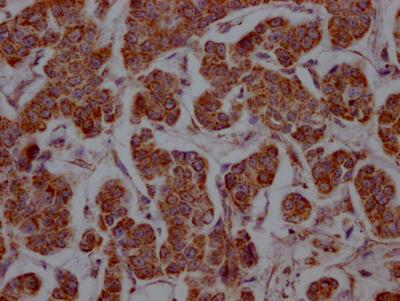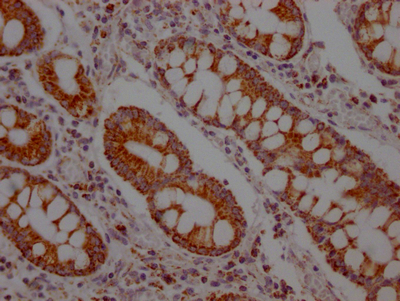To produce the SLC16A1 recombinant monoclonal antibody that detects human SLC16A1 protein, four steps are involved. First, the SLC16A1 monoclonal antibody gene is sequenced and then cloned into a plasmid vector. The recombinant vector is subsequently transfected into a host cell line. The next step is to purify the recombinant monoclonal antibody from the cell culture supernatant using affinity chromatography. The SLC16A1 monoclonal antibody originates from SLC16A1 antibody-producing hybridomas, and its production involves using a synthesized peptide derived from human SLC16A1 as the immunogen. The SLC16A1 recombinant monoclonal antibody is suitable for use in ELISA, WB, and IHC applications.
The SLC16A1 protein, also known as MCT1, is a transmembrane protein that is involved in the transport of lactate and other monocarboxylates across the plasma membrane. In cells, the SLC16A1 protein facilitates the transport of lactate produced by glycolysis out of the cell and into the extracellular space, where it can be taken up by other cells for use as an energy source or converted back into glucose by the liver. In addition to lactate, SLC16A1 can transport other monocarboxylates, such as pyruvate and ketone bodies, depending on the metabolic demands of the cell. SLC16A1 has also been implicated in the regulation of cellular pH and the response to hypoxia.








